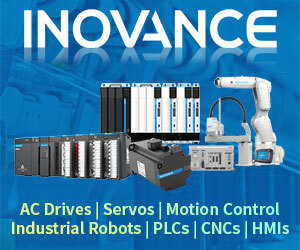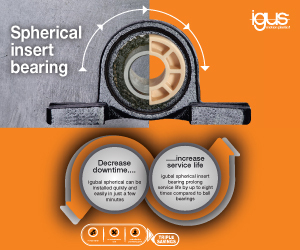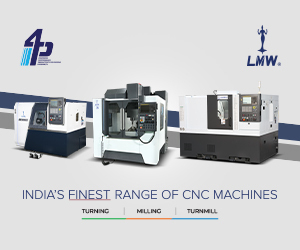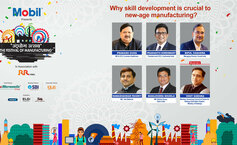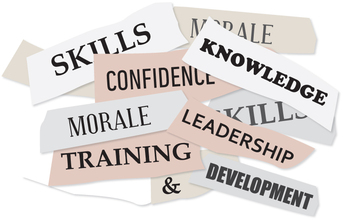
Speaking about steps that Godrej & Boyce takes, Kaur explained, "We have a comprehensive developmental approach on competency based functional and leadership approach. We first identify gaps and the programmes to address these gaps. There are structured programmes like General management/ Technical programmes at junior management and programmes like VLFM, Tic-ups with IIMS or specialisations and General Management programmes for mid to senior management programmes."
AB Sea Container Pvt Ltd as well organises training programs. Speaking on the same, Budhiraja said, "For the management, we have leadership training courses, which occurs every year. For supervisors and other levels of divisions we provide trainings for time management, trust activities, whistleblower, natural disaster and special skills training for labours."
Upgrading skills
Apart from gaining knowledge and specific skill sets, upgrading and polishing existing skills is also equally important. In this regard, "thyssenkrupp Elevator India has set up SEED Campus at its Multi-Purpose Facility, Chakan Pune, for centralised training. Training activities are also conducted at zonal level in six major cities of India. SEED integrates into thyssenkrupp Elevator's global network of 17 seed campus locations. Apart from the usual classroom and AV training, this centre is well equipped with the latest digital technologies and simulators to deliver quality learning to not only the management and office staff, but also to the field technicians who are responsible to install and maintain our elevators," added Vishnani.
In this aspect Budhiraja replied, "All our employees are trained to constantly adapt new changes and developments introdced by the management or latest technology. No doubt, initially when a change is introduced, retaliation is surly present as well. But all of the employees have been trained to adjust and understand the pros of new technology and cons of already existing technology from day one. Technological advancement is the only survival tool that organisations have today. Without constant research and development of new ways of executing work and new technology available for betterment of operations, success surly cannot be achieved. Employees surly are acknowledged with this fact that advancement of technology is for the betterment of efficiency only. Above than this we ask from employees to suggest the new ways of executions and new technologies available, which they can suggest to simplify their work. With this practice, employees are constantly engaged in the activities of exploring new ways to execution. In the end concluded with very minor retaliation to new mechanism, changes and technology."
To conclude, Budhiraja said, "Training and development is very essential in the role of taking any organisation to success. With constant training of new skills and new technology, better and more efficient ways of operations can be attained. While on the other hand, to implement new skills and technology acquired by training, development is further essentially required. Training and development are the most important factors which aids an organisation to get better in terms of efficiency and then to better results and finally success. Training employees to adapt new trends and ways of executing operations, and further developing machinery or infrastructure to assist in the operations is a sure short way of success. With the help of training, an organisation can derive many benefits not just monetary, but it help in identifying characteristics of leaders as well as employees. How adaptable the
management and employees are, how do they work under pressure, how they respond to new theories and changes and above than that how loyal and supportive the whole organisation is when changes are introduced." With this whole process new leaders
can be discovered as well as shortcomings in the present management can also be identified.
END














